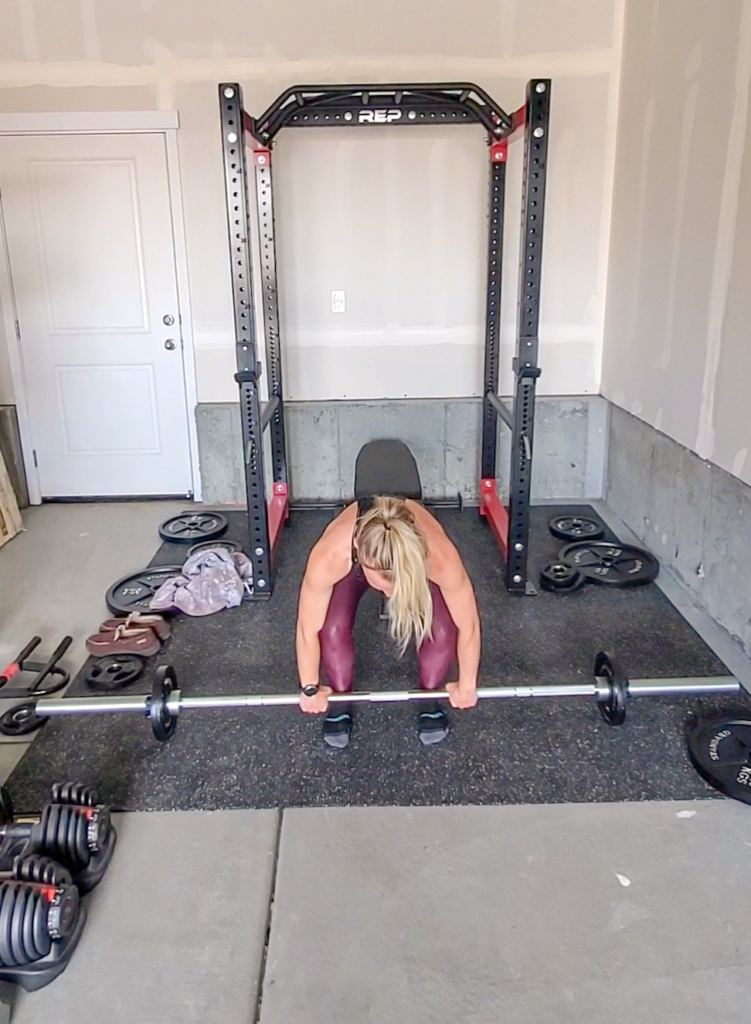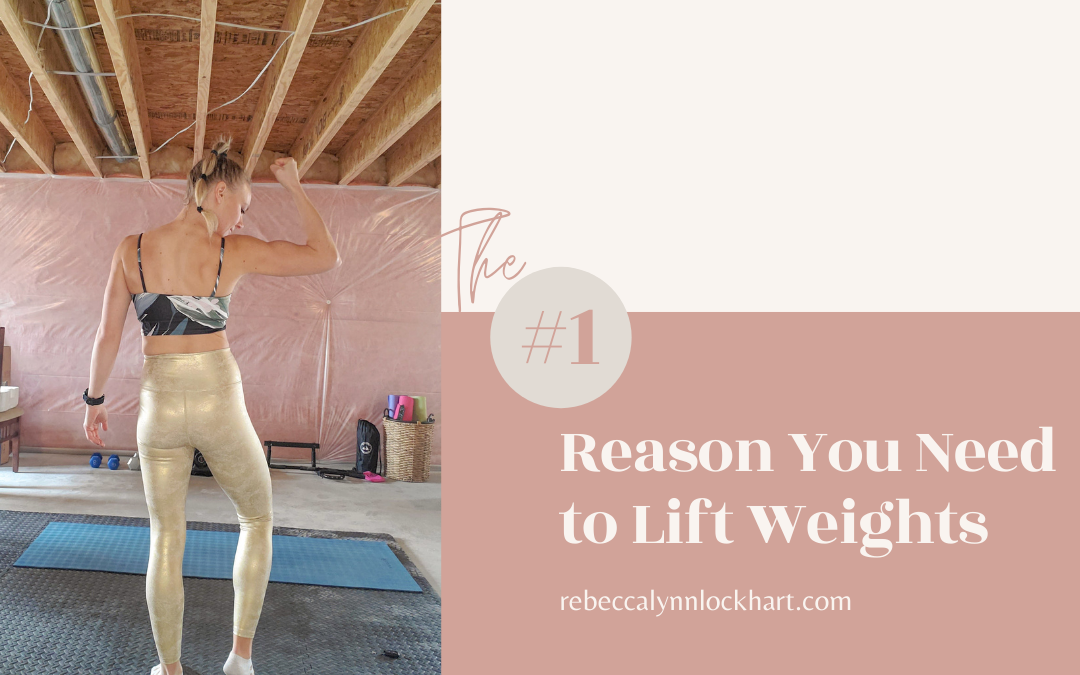Did you know that as you age you start to lose muscle naturally? Muscle mass declines between 3% and 8% every decade after the age of 30. Say what???
And that this increases to 5-10% every decade after the age of 50?
Well I’m 30 now (she says reluctantly…) so this is hits home.
But there’s good news! You can stop this from happening!
Over 30 or 50? You can also reverse this muscle loss!
Why does muscle loss matter?
Skeletal muscle makes up about 40% of our total body weight and influences a variety of risk factors as we age. Things like obesity, type 2 diabetes, and cardiovascular disease. And we know these are all related.
So what happens when we lose muscle?
Muscle protein breakdown and synthesis are largely responsible for energy expenditure in resting muscle (i.e. burning calories at rest). So if we lose muscle this means that our resting energy expenditure will decrease. Muscle loss is the greatest factor in the slow down of our resting metabolic rate as we age.
As we lose muscle that also means our body fat percentage will naturally increase. And because muscle loss reduces our resting metabolic rate, this typically results in weight gain. Weight gain leads to obesity which leads to Type 2 diabetes and/or other cardiovascular disease.
So as you can see, this is about way more than aesthetics as we age. This is literally about your health. And we haven’t even gotten into bone density yet. Keep reading for more on that.
Can we reverse muscle loss?
If you’re a woman reading this, I’m sure you have heard at some point in your young teens and twenties the whole “enjoy it while it lasts” whilst stuffing your face with french fries, a donut, etc. And the explanation is that your metabolism will slow down at 30. Which is true if we don’t do anything about it. But I have good news! We can do something about it and it’s never too late to reverse muscle loss or speed up our metabolism!
Even if you’re over 30 or 50 and have never lifted a weight in your life, we can reverse the natural muscle loss that comes with aging. This also means that we can reverse metabolic slowdown.
Multiple studies have demonstrated that a few short sessions of resistance (weight) training each week (2-3 sessions) can increase muscle mass in adults of all ages through their 10th decade of life.
By adding resistance training into your weekly routine, you can increase muscle mass, which in turn increases your resting metabolic rate since muscle requires greater energy expenditure at rest than fat.
Resistance training also causes microtrauma to our tissue which requires a large energy expenditure to repair that may persist up to 72 hours post-session. This means that for up to 72 hours post-training session your body will continue to burn more calories, working hard to repair the tissue. In addition, research has shown an increase in resting metabolic rate of approximately 7% after just several weeks of resistance training!

Bone density
It’s not just muscle we lose as we age. Muscle loss is associated with bone density loss as well which leads to an increased risk of osteoporosis and bone fractures. Adults who do not participate in resistance training lose 1-3% bone mineral density every year!
Because we know that muscle loss leads to bone density loss, it makes sense that muscle gain leads to an increase in bone density as well. Several studies have shown significant increases in bone mineral density after 4-24 months of consistent resistance training.
So if you don’t want to be the old lady with the broken hip, I suggest you start lifting some weights. 🙂
Mental health
This could be its own entire blog post which I’ll consider writing in the future, but I’ll keep it brief for our purposes. Studies have shown that 10 weeks of a combination of aerobic and resistance training have significantly improved physical self-concept, total mood disturbance, depression, fatigue, positive engagement, revitalization, tranquility, and tension in adults and older adults.
I don’t know about you, but I hate mood swings and feeling depressed. Exercise can seriously help.
As if those benefits weren’t enough, studies have also shown that resistance training can improve cognitive ability. When you think about it, it makes sense. Resistance training is really about learning new skills. Learning new skills require improved cognitive ability. So we lift weights not just to make our bodies strong, but to also make our minds strong.
So tell me, are you currently doing resistance training? If not, have I convinced you to start? And if you are already resistance training, that’s awesome! Tell me how your training plan is going!
And for more information on training with me, you can go right on over here.
Source:
Westcott, Wayne L. PhD Resistance Training is Medicine, Current Sports Medicine Reports: July/August 2012 – Volume 11 – Issue 4 – p 209-216
doi: 10.1249/JSR.0b013e31825dabb8

0 Comments